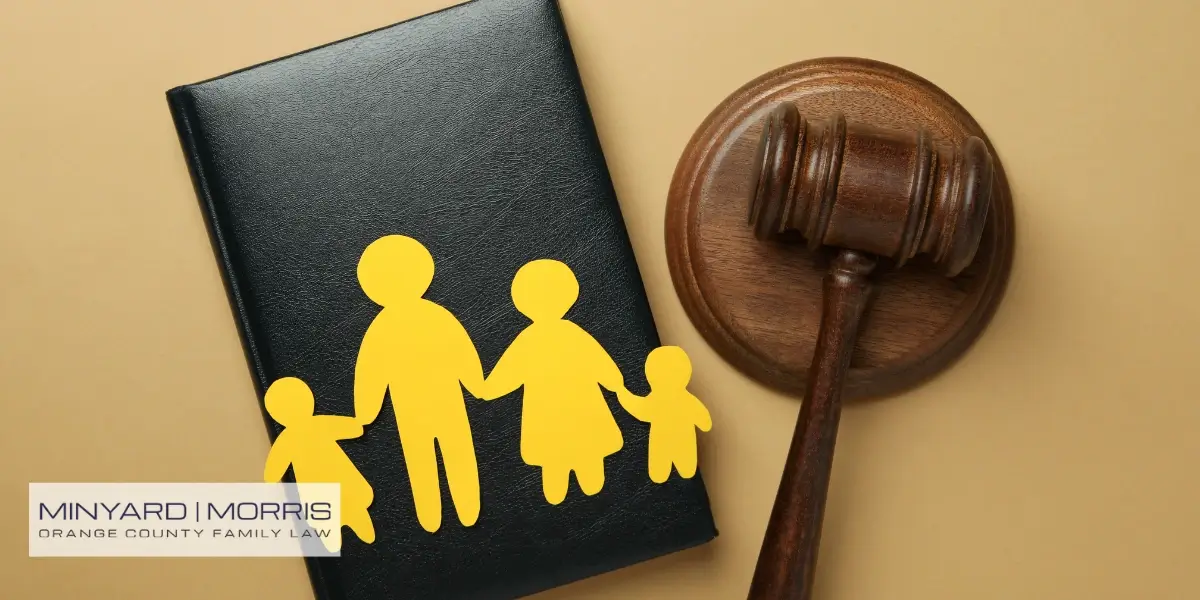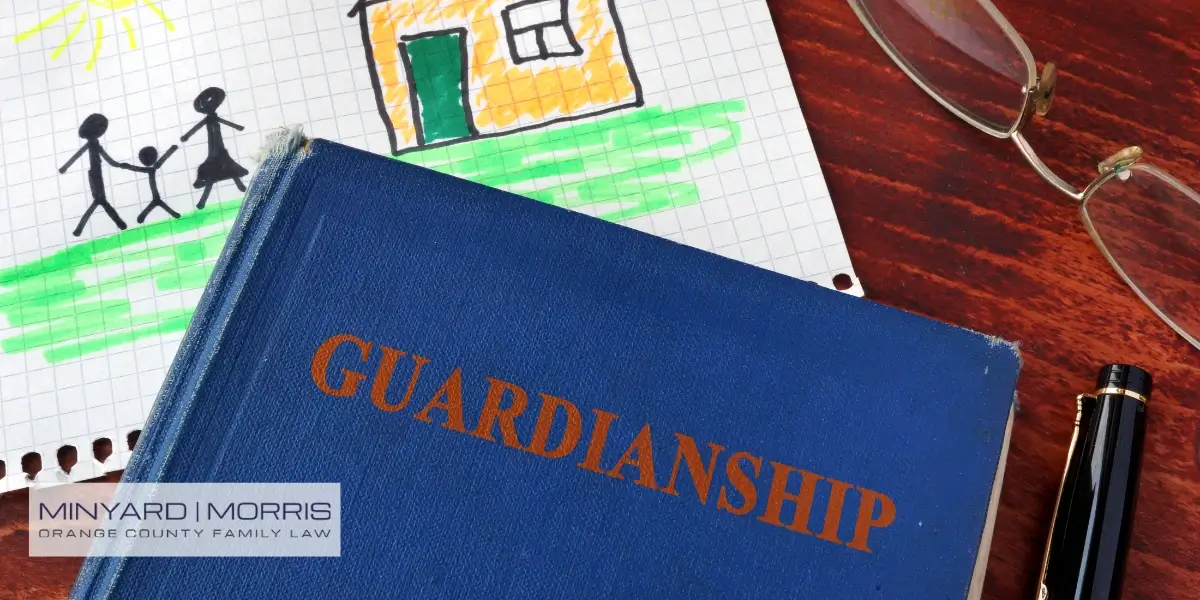Orange County Guardianship Lawyer
Orange County Guardianship Attorney
Whether due to a family breakdown, abandonment, or other causes, guardianship can allow a loving adult to step in and provide stability. The process of gaining guardianship rights over a child is complex and often requires guidance from an Orange County guardianship lawyer. They understand how guardianship cases work and how to secure favorable outcomes for clients in court.

Trusted Guardianship Legal Services in Orange County
When a loving relative or adult seeks guardianship over a child in Orange County, they know they can rely on the trusted services of Minyard Morris to to guide them to the right lawyer for their case. Our industry-leading law firm understands Orange County guardianship laws. With our insight, you and your family can protect the child’s well-being.
As a firm, Minyard Morris brings over 48 years of focused family law service to residents in Orange County. Our award-winning lawyers collectively have over 350 years of combined experience. Our past work for clients has resulted in more than 150 five-star Google reviews and has been recognized by Super Lawyers for decades.
Understanding Guardianship in Orange County
Guardianship cases have a major role in California’s family court system. Families in neighborhoods like Tustin, Costa Mesa, and Irvine often ask for legal guardianship to protect a child’s well-being. The court’s decision, much like in child custody matters, is guided by what is in the best interest of the child.
In the 2021–22 fiscal year, guardianship and conservatorship filings accounted for a large portion of probate court activity, with roughly 10,000 cases filed statewide. Many of these involve minors whose parents are unable or unfit to provide care.
In high-conflict situations, such as those involving abandonment or domestic violence, court intervention becomes critical. In 2023, foster-care adoptions (50,193) in the state reached their lowest level since 2003.
In 2023 alone, California law enforcement logged 160,357 domestic violence calls (an average of 18 every hour), with most occurring in major urban counties like Orange County.
Why You Should Hire a Guardianship Lawyer
Without the help of an experienced guardianship attorney, you may not understand Orange County guardianship laws and how to secure a favorable outcome in court. Legal representation allows you to benefit from the guardianship attorney’s years of experience in guardianship cases. Lawyers understand how to manage cases and notify the biological parents if there are any unexpected delays in the guardianship process.

FAQs
What Is Legal Guardianship in California?
Legal guardianship allows a court-appointed adult to make decisions for a minor or incapacitated adult. It encompasses choices regarding healthcare, education, housing, and finances. Guardianship is different from adoption because guardianship does not terminate parental rights. In California, the guardian must act in the individual’s interests and meet court requirements throughout the appointment.
How Long Does It Take to Establish Guardianship in Orange County?
Establishing guardianship can take several weeks or longer. Emergency or temporary guardianships may be granted more quickly if the court finds an immediate need to do so. Delays often result from missing forms, objections, or incomplete documentation. To avoid unnecessary delays, you can work with a guardianship attorney who understands the state’s guardianship laws and how to guide clients through the process.
What Is the Difference Between Temporary and Permanent Guardianship?
Temporary guardianship is granted for a limited time when immediate care is needed. Permanent guardianship lasts until the child turns 18 or the court decides it is no longer necessary. Both legal processes require court approval, but temporary orders are often resolved more quickly. Permanent guardianship may involve longer durations of court oversight and more responsibilities for the guardian, including potential requirements for financial reporting.
Who Can Be Appointed Guardian of a Minor in California?
A California court may appoint any adult who is deemed capable and acts in the best interest of the child. This can include relatives, close family friends, or other responsible adults. Before granting guardianship, a judge reviews the person’s background, relationship to the child, and ability to provide stable care for the child. When that process is complete, final approval is based on the child’s needs and what the judge believes is appropriate.
Can Guardianship Be Contested in California?
Yes. Guardianship can be contested by parents, relatives, or other interested parties. A person opposing the guardianship must file an objection with the court, where they must present evidence as to why it is not in the interest of the individual. Contested cases often involve hearings and witness testimony. The courts take these matters seriously, and well-founded arguments against guardianship may influence the outcome of a guardianship case.
Speak With an Aggressive Orange County Guardianship Lawyer
The courts carefully scrutinize guardianship applicants to be sure the party seeking guardianship is doing so for the right reasons and has the time and resources to fulfill that role. Whether you are seeking to establish, contest, or modify guardianship, Minyard Morris can assist you in locating the best lawyer for your case.
At Minyard Morris, our team of award-winning attorneys brings over 350 years of combined experience to every case. We hold weekly firmwide strategy meetings to make sure you benefit from both individual representation and the collective strength of our legal team. Contact our office today to learn more about the process and how we could achieve your goals in family court.



